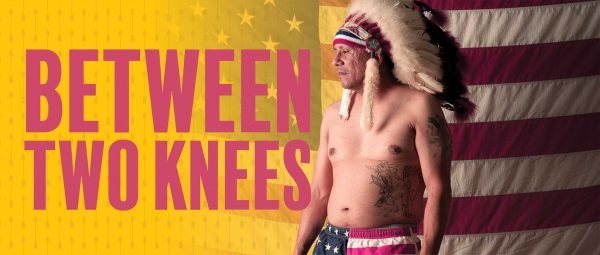
15 Apr TIO Ashland: Oregon Shakespeare & Indie Film Festivals
After a weekend in Ashland attending early days of the productions in the 2019 season of the Oregon Shakespeare Festival, we are betting two of three plays will wind up as hits in New York. “Cambodian Rock Band” is already scheduled for the Signature Theatre complex and “Mother Road” should be picked up. Of the two docs we saw, “Making Montgomery Clift” is well worth seeing, as is the quirky but moving “Why Can’t I Be Me?” (assuming it gets distribution). Scroll down for our restaurants picks.
In 2016 in Cambodia we visited the Killing Fields and the grisly school-turned-prison known as S21 where the sociopathic Comrade Doch supervised the murder of 20,000 innocents, mostly intellectuals, performers, academics of all stripes, anyone of note and privilege who threatened the dominion of the Khmer Rouge, that ragtag rebel group who killed 1/4 of the Cambodian population or about 2 million people during Pol Pot’s reign of terror in the 1970s.
Clearly no laughing matter.
Not a likely narrative to set to music.
And yet…
Get ready to rock out as we did when we attended the production of “Cambodian Rock Band” at the Oregon Shakespeare festival in Ashland.

“Cambodian Rock Band” is an electric musical by award-winning playwright Lauren Yee, which tells the story of a Khmer Rouge survivor returning to Cambodia for the first time in 30 years as his daughter prepares to help prosecute one of Cambodia’s most infamous war criminals, namely the infamous Doch.
Backed by a live band playing contemporary hits by L.A.-based group group known as Dengue Fever and classic Cambodian oldies, the edge-of-your-seat story toggles back and forth in time, as father and daughter face the, umm, music of the past. The New York premiere of this intimate rock epic launches Yee as the Steinberg Award-winning Writer in her Residency 5 at New York’s Signature Theatre complex. Signature will produce two additional works by Yee over the course of five years.

Whole audience standing, dancing for Finale!
In general, it was a wonderfully rich weekend with family of theatre and film chock full of surprises. The stories told on stage and screen gave us permission laugh at things we might otherwise grieve, snatched hope out of the jaws of historical defeats and, in general, righted wrongs, corrected myths about The Other. In every unlikely case, we left the theatre smiling at the always brave, and heartwarming, often very funny stories. Another plus: we got to share the weekend of theatre with students from the region, who raised the temperature at the venues to boil. That is to say happily those young people were anything but whatever faced with the clear, political messages in the material.
Case in point: “Between Two Knees.”

“Between Two Knees” is a laugh riot about a long list of wrongs that happened on our shores, devastating the lives of Native Americans.
In the boldly uninhibited, utterly fearless production the sketch-comedy troupe the 1491s tell an intergenerational story of familial love, loss, and connection that spans the massacre at Wounded Knee, the forced reeducation via Indian boarding schools, all of the World Wars to date, the Civil Rights Movement, the terror that was Lawrence Welk, Vietnam and the 1973 takeover at Wounded Knee.
The world premiere we were privileged to see takes a hard look at the impacts of systematic oppression after the point textbooks typically stop teaching Indian history.
Think if the Key Stone Cops and “Saturday Night Live” got married. A tour de force. Could become a cult classic like “Rocky Horror.”
The third play. “Mother Road,” a world premiere by Octavio Solis, took us on a powerful odyssey from anger and ignorance, pain, bigotry and social injustice, to awareness, acceptance and hope.
“Mother Road” is an epic tale for the 21st century inspired by John Steinbeck’s “The Grapes of Wrath.” this world-premiere drama follows the story of hardworking and hard-living William Joad who has believes he has no blood kin to inherit the family farm. No one, that is, until he finds an unexpected relation, Martín Jodes, a young Mexican-American man descended from Steinbeck’s protagonist Tom Joad. Directed by Bill Rauch in his last season as artistic director, this powerful story about land, family and survival inventively reverses the Joads’ mythic journey from California back to Oklahoma.
According to online sources, to tell an authentic story, in 2013, Solis traveled those same roads, experiencing the journey through the lens of history and his own Mexican heritage. En route he discovered that today’s Okies are from Asia and from Central America, migrant workers housed in camps, ill-treated by a system that favors corporate greed and established interests. He saw that many of yesterday’s wrongs are still not right and that memories of past troubles are still very real.
In the end, however, when Martin finds his chosen family to help him care for his legacy, the Joad farm in Oklahoma, it is a rainbow coalition of Mexican, Black, Choctaw and Gay. Politically correct, yes, but nonetheless believable and heartwarming in the face of the current administration policies on immigrants and immigration.
When we checked into our hotel in Ashland, we were asked if we were there for plays or movies. Turned out Ashland is also home to a robust, annual independent film festival. We were able to shoehorn two movies into our schedule.
In “Why Can’t I Be Me Around You?” renowned art car artist Harrod Blank’s camera-covered van breaks down near Albuquerque, NM. The only mechanic capable of fixing it is local drag racer and machining savant, Russell “Rusty” Tidenberg.

When he meets him, Rusty had recently begun to transition by getting breasts. While Rusty works, Harrod learns that his boss (father) cut his pay, his biker friends rejected him, and women won’t date him now. Struck by his story, Harrod films Rusty over a period of eight years. Other gender-non-binary art car artists whom Harrod meets shed further light on gender identity in America. The film follows Rusty, who turns out to be intersex, on this difficult journey of embracing and exhibiting both of her genders, while still hoping for acceptance, and love. At the Q & A, she told a rapt audience as a she-man she was still looking.
In craving human connection, Rusty The Other is all of us.
Classic film star and queer icon Montgomery Clift’s legacy has long been a story of tragedy and self-destruction. But when his nephew Robert Clift and Robert’s wife Hillary Demmon dive into the family archives, a much more complicated picture emerges.
“Making Montgomery Clift” is a revelatory doc that does a great job of deconstructing the pop psychology that reduced a complex life and awesome career of a beautiful man into a Freudian cliche. And why? Likely because Clift lived at a time that the “love that dare not speak its name” was barely whispering and when this open bisexual refused to allow the studios to get a lock on his talent. Based on the doc, Clift appears to have been rebel with a cause – letting his talent run free and his lifestyle with it – damned by time and the establishment.

Like Rusty, like the migrants in “Mother Road,” like the Native Americans in “Between Two Knees,” like the performers in “Cambodian Rock Band,” Clift became The Other, someone to be feared and therefore crushed.
All well worth seeing.
Where to eat in Ashland:
For big fans of Telluride’s original Siam and Siam Talay today, saying we had one of the best Thai dinners we’ve ever enjoyed is, well, saying a mouthful. Thai Pepper is a must. The eaterie features small plates and craft cocktails at this hip, warm venue.
Same goes for Thai Pepper’s sister restaurant, Ostras, a tapas bar, featuring great food and service with smile. Leave room for an authentic paella after sampling the tapas.
For a wonderfully authentic Italian meal, head for Cucina Biazzi. Plan on a few hours. The tasting menue features multiple courses served family style (for sharing).
For drinks after the theatre (and small eats) head for Liquid Assets.


Sorry, the comment form is closed at this time.